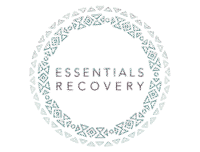Completing a rehab program is a significant achievement on the road to recovery, but it’s only the beginning of a lifelong journey. The transition from rehab back to everyday life can be both exciting and daunting. This phase requires careful planning and commitment to maintain sobriety and build a fulfilling life. Understanding the key steps involved in this transition can empower individuals to navigate challenges confidently and reduce the risk of relapse.
Recognizing the Importance of Transition Planning
Leaving rehab means leaving a highly structured environment with constant support. The comfort and security of round-the-clock care give way to real-world stressors and triggers. Transition planning is essential because it prepares individuals for this shift by establishing routines, support systems, and coping strategies that promote ongoing sobriety.
Without a plan, the risk of feeling overwhelmed or isolated increases. Careful preparation helps build resilience and self-efficacy, enabling individuals to thrive outside rehab.
Establishing a Support System
One of the most crucial steps after rehab is maintaining and expanding a strong support network. Support can come from many sources:
- Family and Friends: Rebuilding relationships and establishing healthy boundaries creates a foundation of love and accountability.
- Peer Support Groups: Groups like Alcoholics Anonymous (AA), Narcotics Anonymous (NA), or SMART Recovery offer fellowship and shared experience.
- Sponsors or Mentors: Having a trusted sponsor provides guidance and encouragement, especially in difficult moments.
- Professional Support: Continuing therapy or counseling helps address underlying issues and develop coping skills.
Regular contact with supportive people can reduce feelings of isolation and provide motivation during challenging times.
Developing a Daily Routine and Structure
After rehab, creating a consistent daily routine helps replace old habits with healthier ones. Structure provides predictability and purpose, which are vital for emotional stability and relapse prevention.
A routine might include:
- Scheduled wake-up and bedtimes
- Meal planning and regular nutrition
- Time for exercise or physical activity
- Attendance at support meetings
- Time for work, education, or volunteering
- Leisure activities and hobbies
Having a plan for the day reduces boredom and uncertainty, which can trigger cravings or relapse.
Continuing Therapy and Counseling
Recovery is an ongoing process that often requires long-term therapeutic support. Many individuals benefit from continuing outpatient therapy after rehab to work through emotions, stressors, and triggers that arise in daily life.
Therapy modalities like cognitive behavioral therapy (CBT), dialectical behavior therapy (DBT), or trauma-informed care can be particularly helpful. These approaches provide tools for emotional regulation, problem-solving, and building resilience.
Regular counseling also helps individuals stay connected to their recovery goals and receive accountability.
Creating a Relapse Prevention Plan
Relapse prevention is a proactive process involving identifying personal triggers and warning signs. After rehab, it’s important to develop a detailed plan that outlines:
- High-risk situations to avoid
- Healthy coping mechanisms to employ
- People to contact when experiencing cravings or stress
- Strategies to manage emotional or physical discomfort
- Steps to take if a slip occurs
A written and revisited relapse prevention plan empowers individuals to recognize risks early and respond constructively, minimizing the chance of a full relapse.
Setting Realistic Goals
Setting achievable goals provides motivation and a sense of accomplishment. Goals might relate to personal growth, career, education, relationships, or health.
Breaking larger goals into smaller, manageable steps makes progress tangible and helps build confidence. Celebrating milestones, no matter how small, reinforces positive change and supports continued growth.
Securing Stable Housing and Employment
Stable living conditions and meaningful work contribute significantly to recovery success. Many rehab programs assist with finding sober living arrangements or transitional housing to provide a safe, supportive environment.
Employment or vocational training offers purpose, structure, and financial independence. Setting realistic expectations about returning to work and seeking support in job searches can ease this transition.
Practicing Healthy Lifestyle Habits
Physical and mental health are closely linked in recovery. Maintaining healthy habits such as balanced nutrition, regular exercise, sufficient sleep, and mindfulness practices enhances overall well-being.
Reducing stress through relaxation techniques, hobbies, or spiritual practices also supports sobriety. These habits strengthen the body and mind, making it easier to handle life’s challenges without turning to substances.
Building New Social Circles
Reintegrating into social life after rehab involves making intentional choices about relationships. Old friendships tied to substance use may need to be replaced with new connections that support sobriety.
Participating in sober activities, community groups, or clubs helps build a social network that aligns with recovery values. Positive social interactions provide emotional support, reduce loneliness, and increase feelings of belonging.
Managing Expectations and Embracing Flexibility
Transitioning from rehab is a process that may involve setbacks. Understanding that recovery is not linear allows individuals to approach challenges with patience and self-compassion.
Being flexible and open to adjusting plans as needed helps individuals navigate unexpected obstacles without losing hope. Embracing progress over perfection fosters a resilient mindset.
Utilizing Aftercare Resources
Many rehab programs offer aftercare planning and resources to assist with the transition. These may include:
- Outpatient treatment programs
- Peer recovery coaching
- Sober living homes
- Support group referrals
- Educational workshops
Engaging in aftercare services provides continuity of care and reinforces commitment to long-term recovery.
Recognizing and Managing Stress
Stress is a common relapse trigger. Learning healthy ways to manage stress post-rehab is essential. Techniques such as deep breathing, meditation, progressive muscle relaxation, and physical activity can be effective.
Seeking help when stress becomes overwhelming and avoiding unhealthy coping mechanisms strengthens resilience and supports sobriety.
Staying Accountable
Accountability helps maintain motivation and provides external reinforcement of recovery goals. This can come from sponsors, therapists, family members, or recovery groups.
Regular check-ins, honest communication, and setting clear boundaries contribute to an accountable lifestyle.
Conclusion: Embracing the Journey Beyond Rehab
Transitioning from rehab is a pivotal moment that requires intention, support, and commitment. By establishing strong support systems, maintaining routines, continuing therapy, and practicing healthy habits, individuals set the stage for lasting sobriety.
Recovery is a lifelong journey, and each step beyond rehab is an opportunity for growth and self-discovery. With preparation and resilience, the path forward can lead to a fulfilling, substance-free life full of hope and possibility. Call us today at 855-509-1697.



